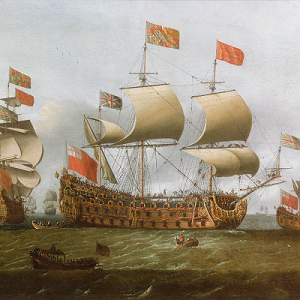The Modern British Mercantilist System 1803-1914: changes in patterns of commerce, industry and warfare
***OBS: Este texto passou por revisões substanciais após a sua apresentação no Congresso Britain and the World 2016 que não estão incorporadas no pdf em anexo***
Abstract
This article argues mercantilism was not only a name for a diverse set of practices and reasoning as some historians and economists often portray it, but also a set of social and physical technologies. My objective is to reconsider the role of the mercantilist system as a main cause of British Empire rise to and maintenance as a world hegemony. In part one, I show how British stake for hegemony was since its beginning based on its capacity to organize and secure a large scale system of international commerce. This mercantilist system associated Britain’s industrial development to service sector and military interests, like finance and transportation. In part two, I try to demonstrate how railway building was perfectly fit for answering industrial and service sector British interests. However, its spread also meant new opportunities for heavy industries to emerge. Countries like United States and Germany would take railways as a starting point to organize national economies in larger scales of production, distribution and management than it used to be possible in a world where maritime transportation was the sole technology for cost-efficient large-scale distribution. In part three, these new scales of organization coupled with military innovations are shown to have allowed for the expansion of modern imperialism by the end of the century. Meanwhile, however, British complex mercantilist system of international commerce never lost its hegemonic status. I conclude by arguing British Empire relative decline as world hegemony was rather a consequence of the changing nature of where and how economic competition and political rivalries took place, a shift from maritime to land-based large scale economies, than a consequence of the relative decline in its industrial primacy, as some historians argue.
Keywords: Mercantile System, British Empire, British Hegemony, Railways, Warfare


Deixe uma resposta